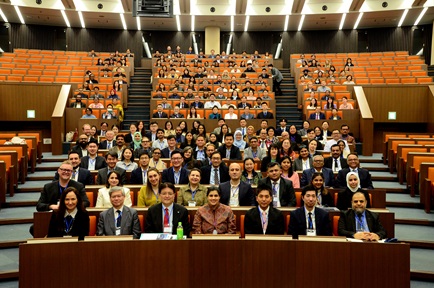The best sustainability reports: winning features
What makes a sustainability report that’s actually worth reading? BY KELVIN LAW AND RONY LIM
Today, it has become mainstream, with most large companies releasing sustainability reports every year. However, sustainability reporting has also become increasingly complex and dense, making it difficult for the average person to understand what companies are actually doing in their sustainability efforts.
What makes a sustainability report that is worth reading?
Recently we had the opportunity to delve into the sustainability reports of listed companies in Singapore as part of a judging panel for the Best Annual Report Award (Best ARA).
To give some context: The Singapore Corporate Awards (SCA), jointly organised by Institute of Singapore Chartered Accountants (ISCA), Singapore Institute of Directors (SID) and The Business Times (BT), was launched in 2005 as the umbrella awards for exemplary corporate governance practices for listed entities in Singapore.
One of the awards, the Best ARA, is managed by ISCA and aims to promote excellent corporate reporting and a more extensive scope of disclosure in line with demands of investors and other stakeholders such as employees, creditors, and the general public.
Listed companies’ sustainability reports – whether issued separately or included in annual reports–are part of what we judge to award the Best ARA. The winners of the Gold Awards of the Best ARA 2022 are:
- Keppel Corporation (among companies listed on the Singapore Exchange (SGX) with market capitalisation of S$1billion and above);
- Tuan Sing Holdings (among SGX-listed firms with market cap of S$300 million to less than S$1 billion);
- Qian Hu Corporation (among SGX-listed with market cap of less than S$300 million); and
- CapitaLand Integrated Commercial Trust (Reits and business trusts).
Keppel Corporation (among companies listed on the Singapore Exchange (SGX) with market capitalisation of S$1 billion and above); Tuan Sing Holdings(among SGX-listed firms with market cap of S$300 million to less than S$1billion); Qian Hu Corporation (among SGX-listed with market cap of less than S$300 million); and CapitaLand Integrated Commercial Trust (Reits and business trusts).
Data-driven and actionable
The best sustainability report contains quantitative data on key performance indicators that are accurate, timely, and relevant to a company’s strategy. The data should help the reader understand what the company is doing in sustainability, how the company is performing, and where the company can improve. In addition, the data should be presented in a way that is easy to understand and, most importantly, actionable.
For example, CapitaLand Integrated Commercial Trust (CICT) clearly articulates how it identifies its key performance indicators in its sustainability report. Besides producing a long-term strategic plan to align with the recommendations of the Task Force on Climate-related Financial Disclosures, CICT also highlights its progress made in meeting the sustainability targets.
Data disclosure without sustainability targets makes it difficult for the readers to gauge whether the company is making progress. A sustainability report should not just be a document that is filed away and forgotten. It should include concrete plans for how a company will improve its sustainability performance in the future.
Readers often question data that is not verified because it is difficult to determine if the company is being truthful about its claims. SGX will require internal auditors to review all sustainability reports beginning in 2022, after receiving strong backing following a public consultation to enhance the credibility of sustainability reports. Although external audits on the reports are not mandatory right now, SGX is still keeping an eye on the situation.
For example, Keppel Corp’s sustainability report clearly described the roles of its internal auditfunction and external assurance providers in its governance processes and how they upheld the credibility of its reporting.
We are glad to note that more and more listed companies have sought external assurance for their sustainability reports. The externally assured reports were common in the big cap winners – something that other companies can emulate.
The independent assurance reports appended in these sustainabilityreports allowed investors and other stakeholders to better understand how data had been verified and make a more informed judgment on the information contained in the sustainability report.
Companies are also encouraged to allocate resources that uphold assurance of sustainability disclosure because of increased expectations of reliability.
Yoma Strategic Holdings’ sustainability report was thoughtful – it was transparent in disclosing and reviewing employee relations and local community engagement targets. In addition, the report contained a comprehensive assessment of the social, environmental and economic value contributed by various sustainability programmes.
Besides explaining how the sustainability governance system is set up to oversee these policies, a good sustainability report identifies senior management responsible for sustainability issues and explains how management ensures these policies are working.
For example, Qian Hu Corp clearly outlines its sustainability governance structure and identifies who in its senior management ranks oversees sustainability.
Another good example is Tuan Sing Holdings’ sustainability report. It contains a board statement that discloses the board’s oversight of sustainability issues and the process of identifying material sustainability issues. Besides highlighting corporate commitment towards sustainability concerns, such a move fosters corporate accountability towards stakeholders.
Sustainability reporting has undoubtedly come a long way in Singapore. However, more work should be done to match the standards of topnotch reports produced in other developed markets.
Moreover, with sustainability reporting being a journey and not a destination, continuous improvement is expected if companies aspire to produce reports that are worth reading.
The writers are fromNanyang Technological University’s Nanyang Business School. Kelvin Law is an associate professor; Rony Lim is a lecturer, and a member of the Best Annual Report Award judging panel for the Singapore Corporate Awards.
Source: The Business Times







